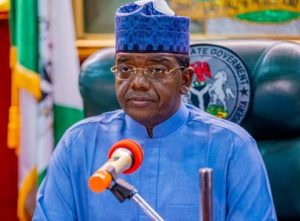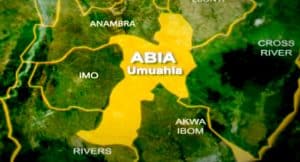CLIMATE CHANGE: Demands for Charcoal an enchantment against reforestation

Adeyemi Adekunle
Abuja, Nigeria
Charcoal business has been a business not for the Wealthy class alone but for low income earners in Nigeria for decades.
Huge numbers of Nigeria’s population rely on charcoal either for homemade cooking or for business reasons, not because it’s convenient but for the economic recession dangling on Nigeria’s economy has made it difficult for people to access cooking gas or Kerosene, coupled with exponential high dependence on importation which makes the product difficult to access. But only a handful of Nigerians are aware of the dangers been invited with variant classes of climate emergencies.
In 2020, Nigeria’s Domestic Liquefied Petroleum Gas (LPG) consumption hit a record 1 million metric tonnes.The figures supported by the sister agency the Petroleum Products Pricing Regulatory Agency (PPPRA) brought accelerated improvement in the domestic gas utilization of 840, 594.37 metric tonnes in 2019 and 635, 452 metric tonnes recorded in 2018.
For over five-decades charcoal business has been one of the world largest economy that distribute on a industrial scale, but in Nigeria the inaccessible road network in most villages, make the business only thrive with the aid of bicycle, tricycles, and rickety cars.
Vendors whose livelihood depends on coal had no option but to travel miles covering several hundred kilometers to earn a livelihood.
“There are no trees around here anymore, this is why people are going far away, to cut down trees to have charcoal. We have had a bad year, we are having a hard time with this business and that money is important for us.” says Yakubu Isa, a decade-Old charcoal seller.
Why Demand for Charcoal Productions?
Coal consumption is a symbolic global problem, which also transcends to a local one, with the deforestation attached with it .
But according to Famuyibo Adebola, the faults, don’t lie with the sellers. “It is their means of survival but who is putting pressure on the charcoal burners is us, the end users of coal who are majorly living in the city. We are the ones who need and consume coal. That product comes to the city.”, explains the environmental analyst.
Hamzat Dairu, A forest management analyst said the solution to this menace revolves around the involvement of deeply sustainable reforestation actions, encouraging the use of gas, and reducing the cost of electricity. Until this happens, illegal falling of trees that should protect the upper layer of the earth crust will continue to be in danger, while more harm will pop to living organisms.
‘Around us here, we are under-served communities, no presence of basics infrastructures/amenities here which make it’s difficult to earn a living, we solely depend on the forest for our needs and survivals because of the fast money we make all we need to do is to show them any trees, they do the cutting, while some people who are from here, do the burning process before coals produce, Isaac Audu said.
The charcoal business has been a business not for the elites alone, its also serves a crucial purpose for the lower class in Nigeria. ‘Here in Lagos, not only the poor use charcoal but some top eateries and restaurants also make use of charcoal to cook the majority of their meals because gas which was N350 now sells for N950, taking negative impact on customers patronage’ Foluke Adaramoye, a financial analyst says.
Way out of the menace of deforestation?
The federal government of Nigeria through its Federal Ministry of Agriculture and rural development is doing a lot to curb the illegal felling of trees in reserves that should protect the uppermost layer of the soil to avoid gully erosion other climate related events.
Although challenges in terms of support, funding, or manpower from time to time, are still being experienced by various organizations, But alot in expected to avoid future disaster that could emanate from the illegality involved in the falling of Forests trees for charcoal production.
The government of Nigeria should also step up its efforts to meet the yearnings of its teeming population of under-served communities by providing basic amenities that can change the community dwindling income, to help address the dangers incessantly thrown at the climate.
Adeyemi Adekunle
Is a trained journalist, from Nigeria whose experience has spanned over 8years practice with various media outfits in Nigeria.








